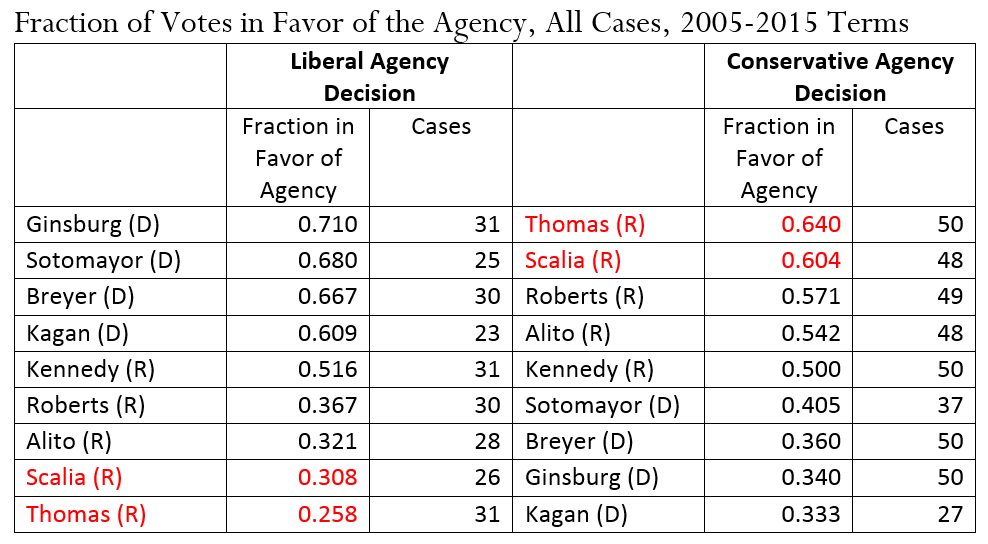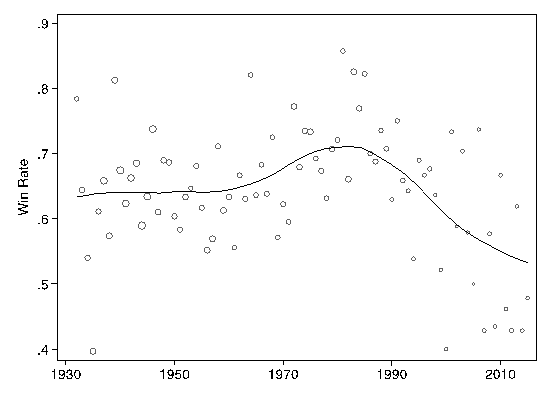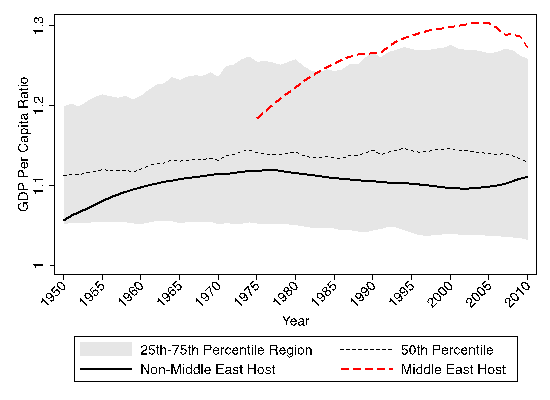Not yet. But it’s hard to see how Trump can last even one term unless his top advisers take away his phone, lock him in a closet, and let him out only for carefully scripted ceremonies which are taped so that they can be edited before broadcast to the public.
The problem is not Trump’s ideology or his policy agenda, which remains popular with a large portion of the public and his important business supporters. It’s his basic competence. Even loyalists will stop supporting him if he can’t implement the policies he promised them. Trump doesn’t seem to understand that a successful president needs the support of the bureaucracy; he can’t boss agency officials around like Trump Organization employees, but must act through them. If he attacks them for political reasons, or is incapable of telling the truth, they will not trust him. If they don’t trust him or if they fear him, they will not do his bidding. They may even try to undermine him. In fact, they already have.
The agencies
The major government agencies, with the possible exception of the immigration authorities in DHS, can’t stand Trump (or so I surmise). The intelligence community, still smarting from Trump’s comparison of it to the Nazis, have engineered the ouster of Flynn by leaking confidential information. But it’s hardly the intelligence community alone. The entire federal bureaucracy can’t even be called a sieve; it’s a hole in the air through which secrets gush out in torrents. Journalists need only extend their tin cup and they have the scoop of a lifetime. Meanwhile, agency employees are figuring out how to slow-walk Trump’s regulations and put sands into the gears of his initiatives.
The courts
If Trump was trying to intimidate the courts, he failed. They are openly contemptuous of Trump. Here is Judge Robart, the “so-called judge”:
As the government argued for postponement, the judge referenced Trump’s tweet reacting to the 9th Circuit ruling saying he would “see you in court.”
“I’m a little surprised since the President said he wanted ‘to see you in court,’” Robart said, later adding, “Are you confident that’s the argument you want to make?”
DOJ lawyer Michelle R. Bennett said: “Yes, your honor.”
Robart is mocking the president. Meanwhile, a district judge in Virginia has found that Trump likely acted out of animus when he issued the travel ban. Passages in her opinion and the Ninth Circuit opinion brim over with disgust at the Trump administration’s lack of professionalism. The respectful formalism of traditional presidential power opinions is gone.
The press
Trump declared war on the press, and is losing in a rout. The problem faced by presidents (and especially conservative presidents) is that while they know that the press wants them to stumble, they also need to use the press. Twitter aside, there is no other way to communicate to the public.
Now, when Trump or an administration official says X to the press, the inevitable headline is “Trump, saying X, lies again.” Trump wants to convince the public that the press lies about his own lies, but he faces a contradiction. He can’t persuade the public that the press lies because, again Twitter aside, he can only talk through the press. While conflict with the press is inevitable, Trump bungled his communications strategy by failing to grit his teeth and cultivate sympathetic journalists while treating the mainstream press more respectfully.
Civil society
For the ACLU and other liberal legal groups, life has never been better. The public, alarmed by Trump’s antics, have showered them with gold. The happy warriors of these legal organizations have already damaged Trump by providing support in the travel ban cases. As the Trump administration continues to hemorrhage scandals, while acting aggressively to satisfy the base, expect ever more litigation against its every move.
Congress
In the short term, the only institution that can stop Trump is Congress, and only if opposition to Trump among Republicans develops. This may seem unlikely. Republicans, quite rationally, want Trump to remain in power so that he will sign the laws that will deliver the goods to their constituents. But they seem finally to be realizing that Trump may not be able to help them deliver the goods. Obamacare and tax reform—the two most important items on the agenda—turn out to be complex. Even in the best of times, major legislation is slow and difficult. Congress can rarely legislate on its own because of its internal rivalries and arcane rules of procedure. An engaged, self-disciplined, and politically sophisticated president is needed to gauge the preferences of members of Congress, offer incentives, make threats, and broker compromises.
Is Trump capable of such legislative maneuvering? It is hard to believe that he is. He already committed an unforced error in the Gorsuch nomination—which should have gone very smoothly—by attacking Judge Robart and the Ninth Circuit. With this ammunition, Democrats will make Gorsuch’s confirmation hearings very unpleasant by forcing him either to contradict Trump or come off as a jellyfish.
Republicans need to ask themselves what will happen when Trump makes his next nominations, especially if the nominees are weaker than Gorsuch or Democrats gain control of the Senate after the next election. Meanwhile, the Flynn episode threatens to embroil the Trump administration in never-ending congressional investigations, which–as Whitewater and Iran-Contra showed–snowball by spinning off revelations and sowing distrust, eventually paralyzing government.
If Trump lacks self-discipline needed to get bills passed, then he has no value for the Republicans in Congress. Gradually Republicans are breaking ranks, complaining privately to the press, or, in a very few cases, publicly. When will the tipping point be reached? If the wisdom of crowds is to be believed, then before the end of his term is certainly a possibility.


